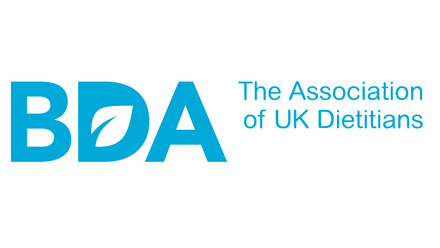by Dr Carrie Ruxton, Freelance Dietitian.
The media often seems awash with stories about dietary risks, many of them spurious or based on limited evidence. However, a genuine risk highlighted by recent reports – that inadequate folic acid status increases the chance of foetal neural tube defects (i.e. anencephaly, spina bifida, encephalocele, abbreviated to NTDs) – prompted barely any column inches.
This is disappointing given that 200-300 NTD pregnancies could be prevented annually in the UK if the folic acid status of women improved (1 - see references below).
Historic background
Figures show that the prevalence of NTD pregnancies in the UK is 1.28 per 1000 total births (19% live births, 81% terminations) (2). In 1991, the Medical Research Council (MRC) published a multi-centred randomised double-blind trial (3) in 1817 women to test whether vitamin supplementation (folic acid vs. seven other vitamins) from conception could prevent NTDs.
The results showed that folic acid supplementation had a 72% protective effect (relative risk 0.28, 95% CI 0.12-0.71) while the combined dose of seven other vitamins had no impact.
This led the MRC to recommend pre-conceptual folic acid supplementation as well as public health measures to ensure adequate folate status in women.
Subsequent reports over the years highlighted the efficacy of folic acid fortification. For example, in 2000, the Committee on Medical Aspects of Food and Nutrition Policy (COMA) stated that universal fortification of flour (240μg/100g) would significantly reduce the number of conceptions and births affected by NTDs (4).
However, there were concerns about unintended effects, such as masking of vitamin B12 deficiency and increased risk of colon cancer. This led the Food Standards Agency to advise against mandatory fortification in 2002.
The issue was raised again when health ministers asked the Scientific Advisory Committee on Nutrition (SACN) to consider the wider impact of folic acid fortification.
The 2006 report (5) concluded that mandatory fortification should only be introduced in the UK if it were accompanied by (a) actions to control voluntary fortification to prevent certain groups exceeding tolerable upper intake levels; (b) careful monitoring of the potential health effects of long-term exposure to high intakes of folic acid.
In 2009, SACN reiterated its recommendations6 and considered studies on folic acid and colorectal cancer, finding no evidence that supplements increased risk. While the Food Standards Agency this time recommended mandatory fortification, no regulatory action was taken. In contrast, folic acid fortification has been introduced in 78 countries, including the USA, Canada and Australia (2).
The Scottish context
In 2013, Scottish Ministers requested advice on the actions deemed necessary in relation to folate fortification in Scotland (7).
This prompted a series of steps, led since 2015 by the newly created Food Standards Scotland (FSS), which included updated advice from SACN, a modelling study, and a paper to the FSS Board.
An important consideration was the decline in folic acid status amongst women of childbearing age. The National Diet and Nutrition Survey (NDNS) revealed that 75% of women between 16 and 49 years in the UK, and 81% in Scotland, have blood folate levels below the World Health Organisation cut-off for preventing NTDs (8).
Updated SACN advice
In 2016, SACN was asked by FSS if its previous risk assessments remained valid. Following an updated evidence review and risk assessment, SACN concluded that its previous recommendations supporting folic acid fortification were unchanged (9).
However, it was repeated that a mandatory approach should only be taken alongside restrictions on voluntary folic acid fortification, and clear guidance on the use of folic acid supplements.
Stochastic modelling study (1)
This study used statistical modelling to estimate the effects of different fortification scenarios on folate and folic acid intakes in the UK, and assess likely reductions in NTD pregnancies.
Data included food and nutrient intakes from years 1-6 of the NDNS rolling programme, up-to-date food folate levels, and information on the wheat flour content of foods. Fortifying all white wheat flour was found to represent the best option for improving folic acid intakes and delivering a potential 20-25% reduction in NTD risk at the upper levels of fortification (300-450μg per 100g of flour).
Capping folic acid in supplements would be required to eliminate the risk of people exceeding tolerable upper intake levels.
FSS Board decision
Taking all the information into consideration10, the FSS Board decided in August 2017 not to recommend a Scotland-only policy of mandatory folic acid fortification. This was due to the practicalities of fortifying flour specifically for the Scottish market, not because fortification was unwarranted or ineffective. Indeed, the FSS Board noted the strong evidence supporting the policy (mandatory fortification could prevent 200-300 NTD pregnancies annually in the UK according to the modelling).
Chairman, Ross Finnie, commented, “The scientific evidence has shown for some years... that this is an effective way of reducing the liability to neural tube defects. Unfortunately... the way in which the flour and milling industries are structured... you would have separate plants having fortification of folic acid for delivery just in Scotland [and] the costs associated with that were disproportionate to the effort that was required” (11).
Going forward, it is hoped that a UK policy will be progressed as there is broad support for a mandatory approach at Public Health England, as well as in the other devolved nations (12).
Conclusion
The lack of mandatory folic acid fortification in the UK has been described as ‘a missed opportunity’ (2), with the authors of this study commenting that, “Failure to implement folic acid fortification ... continues to cause avoidable terminations of pregnancy, stillbirths, neonatal deaths and permanent serious disability in surviving children”.
They estimated that around 2000 NTD pregnancies could have been prevented since 1998 had the UK adopted flour fortification (2). As trends on folate status appear to worsen, the risk of NTDs may be increasing.
Update of folic acid supplements remains low according to a large UK study (13) which found that only a third of women took supplements before pregnancy, with the lowest uptakes seen in Afro-Caribbean women (17%) and those aged under 20 (6%). More worryingly, a study of 22,000 women from 18 European countries (14) revealed that only 17% knew that folic acid could reduce the risk of NTDs, suggesting that more work needs to be done to raise women’s awareness of current recommendations.
References
- Mayer CD et al. (2017) Stochastic modelling to estimate the potential impact of fortification of flour with folic acid in the UK.
- Morris J, Rankin J, Draper E, et al (2016) Prevention of neural tube defects in the UK: a missed opportunity. Archives of Disease in Childhood 101: 604-607.
- MRC (1991) Prevention of neural tube defects: results of the Medical Research Council Vitamin Study. Lancet 338: 131-7.
- COMA (2000) Folic Acid and the Prevention of Disease. London: Department of Health
- SACN (2006) Folate and Disease Prevention
- SACN (2009). Folic acid and colorectal cancer risk: review of recommendation for mandatory folic acid fortification. London: Public Health England.
- FSA (2014) Board paper.
- Bates B et al. (2015) NDNS Supplementary report: blood folate results for the UK as a whole, Scotland, Northern Ireland (years 1 to 4 combined) and Wales (years 2 to 5 combined). London.
- SACN (2017) Folic acid: updated recommendations
- FSS Board paper (2017)
- BBC (2017) Scotland-only folic acid plan ruled out.
- BBC (2016) Folic acid in flour action call to tackle birth defects.
- Bestwick JP et al. (2014) Prevention of neural tube defects: A cross-sectional study of the uptake of folic acid supplementation in nearly half a million women. PLoS ONE 9(2)
- Bitzer J et al. (2013) Women’s awareness and periconceptional use of folic acid: data from a large European survey. International Journal of Women’s Health 5: 201-213.
Further information:






